
Managing client relationships efficiently requires a platform that balances flexibility, security, and ease of use. While Notion is a powerful tool for team collaboration, it lacks the advanced client-facing features that many businesses need for structured interactions, branded portals, and automated workflows.
Fortunately, there are several dedicated client portal alternatives that offer enhanced functionality for handling client communications, file sharing, and project tracking. These tools provide a more seamless experience for both businesses and clients, reducing the need for scattered emails and manual updates.
In this article, we’ll walk through the top Notion Client Portal alternatives that provide a better way to engage with clients. Whether you need a simple portal for document sharing or a more comprehensive solution with task automation and CRM-like capabilities, there’s an option for every business need.
What is Notion Client Portal?
A Notion Client Portal is a customized setup within Notion that allows businesses to manage client interactions, store documents, and track project progress. Although Notion does not have a dedicated client portal feature, users can manually build one by organizing workspaces with shared databases, task lists, and document repositories.
Many businesses use Notion as a lightweight client portal to streamline collaboration and improve visibility across projects. However, because Notion is primarily a productivity and knowledge-sharing tool, it lacks certain key functionalities such as advanced permissions, secure messaging, and e-signature support, which are critical for professional client management.
Advantages of Using Notion as a Client Portal
- Customizable Workspaces – Design dashboards, templates, and databases suited to different client needs.
- Seamless Collaboration – Enables real-time document editing, comments, and @mentions for smooth communication.
- Multi-Functionality – Combines project management, document storage, and knowledge sharing in one tool.
- Affordable Solution – Offers a cost-effective alternative to dedicated client portal platforms.
- Integration Capabilities – Works with popular tools like Slack, Zapier, and Google Drive for added efficiency.
Disadvantages of Using Notion as a Client Portal
- Limited Business Features – Lacks native invoicing, client messaging, and advanced role-based access controls.
- Security & Access Limitations – Does not provide granular permission settings for client data management.
- No Custom Branding – Lacks white-labeling options, meaning Notion branding is always visible.
- No Legal & Payment Features – Does not support e-signatures, approvals, or direct payment processing.
- Manual Setup Required – Users must invest time in structuring the workspace for it to function as a client portal.
Notion Pricing
Free Plan: $0 per user/month – Basic collaboration features, unlimited pages & blocks, and limited file uploads.
Plus Plan: $8/user/month (billed annually) or $10/user/month (billed monthly) – Unlimited file uploads, version history, and collaborative workspaces.
Business Plan: $15/user/month (billed annually) or $18/user/month (billed monthly) – Advanced permissions, SAML SSO, and better admin controls.
Enterprise Plan: Custom Pricing – Everything in Business, plus security & compliance features, dedicated support, and custom integrations.
While Notion can be adapted as a client portal, businesses that require a more structured, secure, and feature-rich solution may benefit from dedicated Notion alternatives designed specifically for client collaboration.
Best Alternatives to Notion Client Portal
If you’re looking for a dedicated client portal solution with more robust features than Notion, there are several powerful alternatives available. These platforms offer better access controls, client-specific workflows, and advanced collaboration tools. Here are five of the best alternatives:
1. FuseBase (Best for Customizable Client Portals & Collaboration)
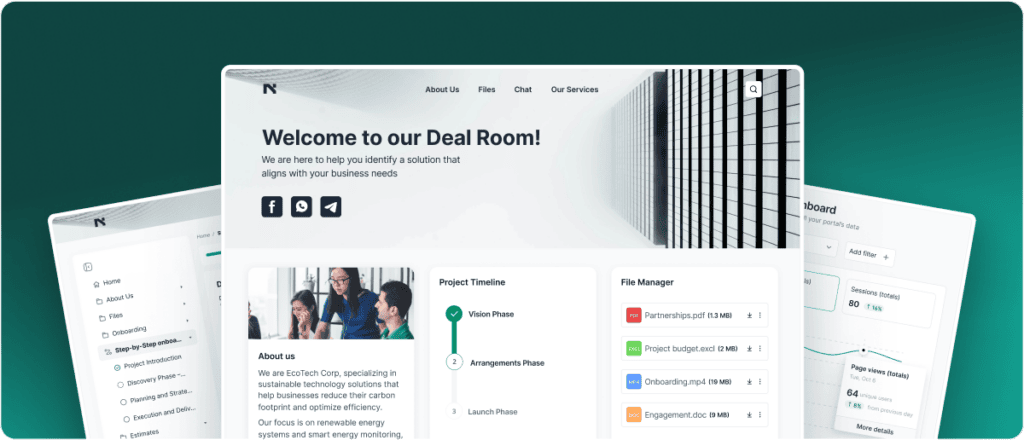
FuseBase is a fully customizable client portal platform designed for businesses that need secure document sharing, task management, and real-time collaboration with clients. Unlike Notion, FuseBase offers granular permission controls, white-labeling options, and built-in automation features, making it an ideal solution for professional service providers, agencies, and consulting firms.
Key Features
- Secure client collaboration with role-based access
- Custom branding and white-labeling options
- Automated workflows and task tracking
- Built-in e-signature and approval processes
- Integrations with popular tools like Slack and Google Drive
Pricing: Custom pricing based on business needs.
✨ Example of how Smart Portals transform your work:
2. Moxo (Best for End-to-End Client Engagement)
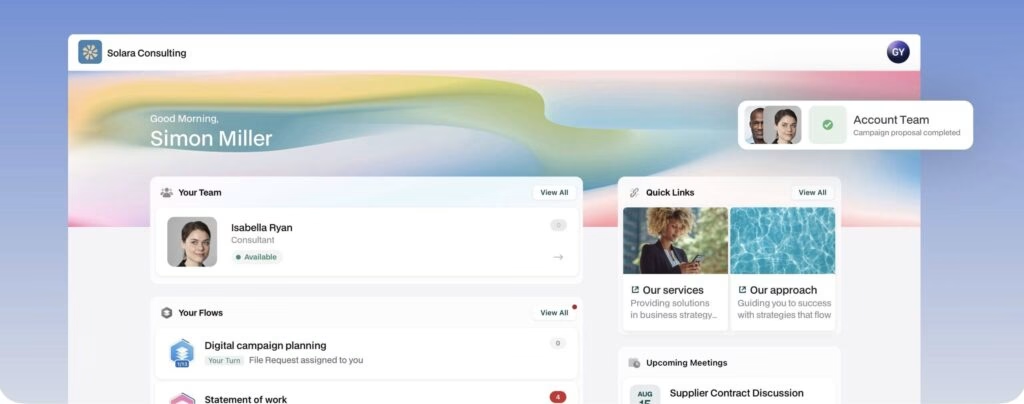
Moxo (formerly known as Moxtra) is a client interaction hub that provides businesses with a dedicated client portal for messaging, file sharing, and workflow automation. It’s great for businesses looking for a mobile-friendly client engagement tool.
Key Features
- Secure messaging and video conferencing for client interactions
- Digital document signing and approval workflows
- Custom branded client portals for a seamless experience
- AI-powered automation for task management
- Bank-grade security and compliance for data protection
Pricing: Custom pricing based on enterprise needs.
3. Clinked (Best for Financial & Legal Professionals)
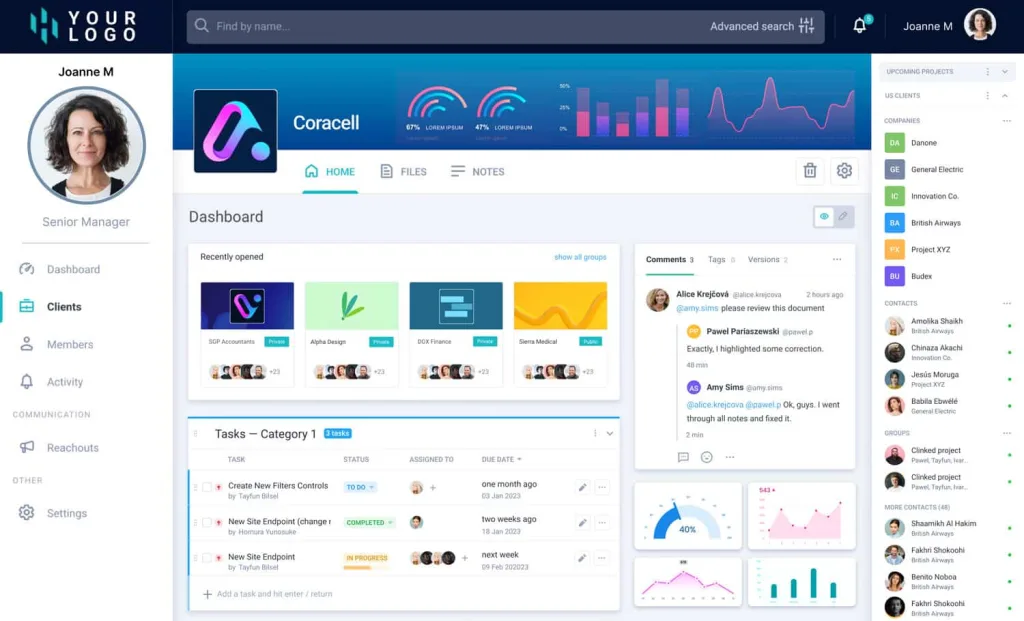
Clinked is a white-labeled client portal solution that provides secure file sharing, team collaboration, and workflow automation. It is widely used by financial advisors, legal firms, and consulting businesses that need a professional, branded experience for clients.
Key Features
- 100% white-label client portal with custom branding
- Secure file sharing with granular permissions
- Task and project management for client collaboration
- Mobile app access for on-the-go client interactions
- Bank-level encryption for data security
Pricing: Starts at $99/month for 100 members.
✨ Another example of Portals that transform your work:
4. Copilot (Best for Agencies & Freelancers)
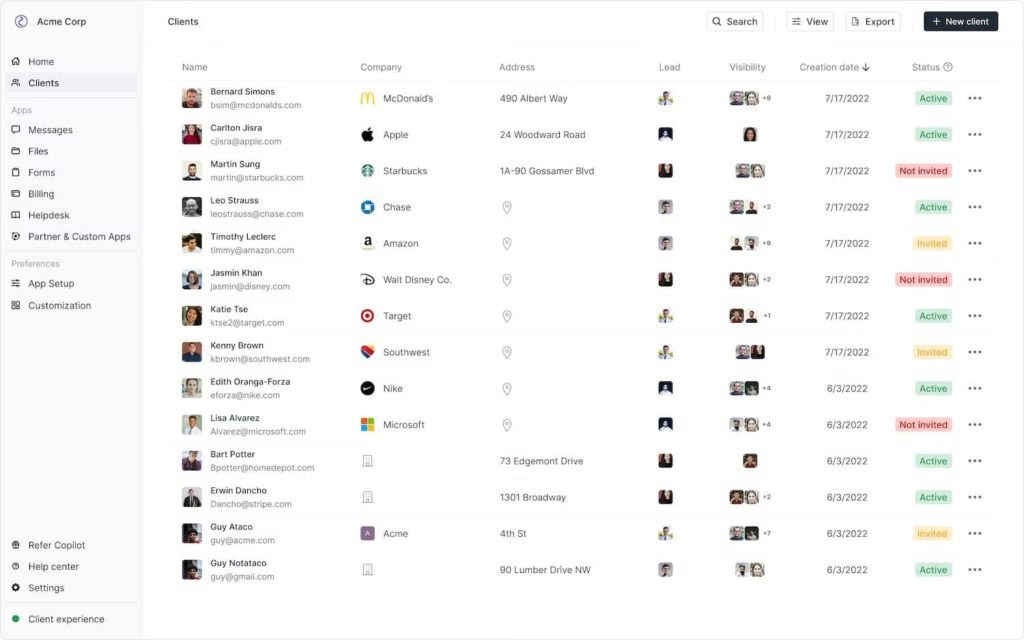
Copilot is an all-in-one platform designed specifically for agencies, consultants, and freelancers who need a professional client portal for communication, invoicing, and task management. It provides a sleek and modern interface that enhances client engagement.
Key Features
- Client onboarding with custom forms
- Integrated messaging and file-sharing tools
- Subscription-based invoicing and payment processing
- API access for custom automation
- Customizable branding for a polished client experience
Pricing: Starts at $29/month per user.
5. SuiteDash (Best for All-in-One Business Management)
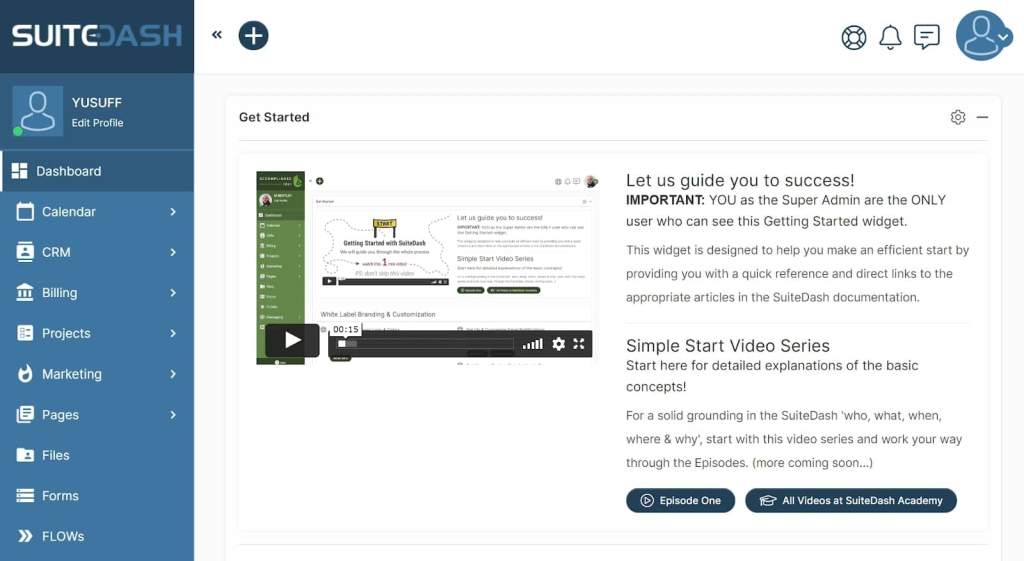
SuiteDash is a feature-rich client portal software that combines project management, invoicing, CRM, and secure client communication. It’s a great alternative for businesses looking for an all-in-one solution without needing multiple tools.
Key Features
- Fully customizable client portals with branded login
- Secure file sharing, project tracking, and invoicing
- CRM and email marketing automation
- Custom client dashboards with personalized data views
- Membership and subscription-based access controls
Pricing: Starts at $19/month for the basic plan.
Final Thoughts
While Notion is a powerful tool for collaboration and internal documentation, it lacks many of the essential features needed for a structured and professional client portal. FuseBase stands out as the best alternative, offering a balance of customization, security, and automation tailored for businesses that require client-focused collaboration. Depending on your specific needs—whether it’s invoicing, secure messaging, or project management—one of these alternatives will be a better fit than Notion for your client portal solution.
